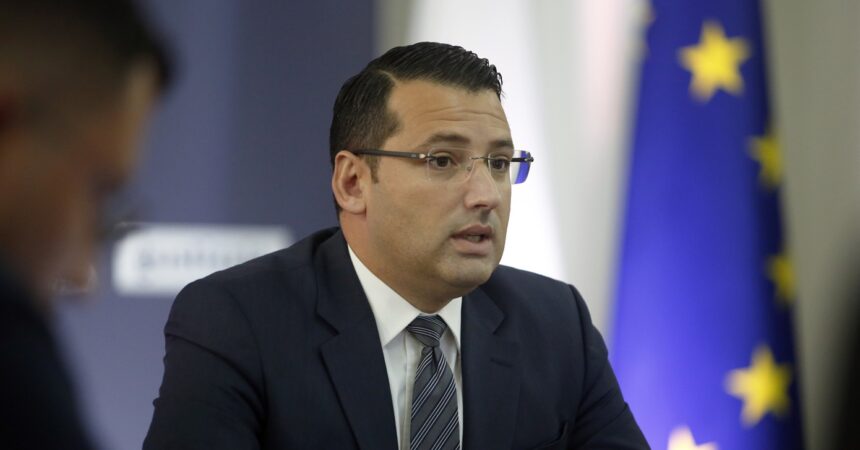Recently proposed changes to economic crime laws related to attachment orders, asset freezes and confiscation orders have divided experts’ opinions, with some calling them an “escape route” for suspected criminals while others laud their “long-overdue” arrival.
The changes, proposed by Justice Minister Jonathan Attard in parliament through Bill 76, will ostensibly introduce “proportionality”, for example, limited to the amount allegedly defrauded in court-issued freezing orders to suspected financial criminals.
Legal experts who spoke to The Shift held differing opinions on the issue, with some regarding them as a way out of the current “draconian” system and others calling them “a shift in balance” toward favouring the accused.
The proposals include reducing the validity period for attachment orders, introducing appeals processes and increasing allowances to release frozen assets.
The prosecution will be required to identify which of the accused’s assets must be frozen, in contrast to a blanket freeze. Experts who spoke to The Shift identified this as the most important change.
Divided legal opinions
Edward Debono, a commercial and constitutional lawyer, described the changes as a potential “via di scappo (escape route)” for those accused of financial crime. The changes, he said, would pile pressure on prosecutors, making the investigative stages of a court case more critical.
“The amendments proposed tend to laud the accused despite the hard evidence required for the freezing order to be issued in the first place. Now carelessness on the part of the attorney general or police will laud culprits with the flight of assets which are already difficult to find in the circumstances,” he said.
Nevertheless, Debono conceded that if the attorney general and police find that some of the frozen assets were not acquired through financial crime, “it is only fair and equitable that the freezing order should be limited.”
An academic and legal expert who spoke to The Shift said the proposed changes indicate “that the balance is being shifted and the rights of the prosecutors and investigators are being restrained in favour of the accused.”
“Linking, calculating and identifying precisely which funds and assets have come from which specific crime would not be an easy task,” he said, noting how the changes “may mean a heavy blow to the supposed sacred total war against money laundering”.
Criminal Lawyer Arthur Azzopardi dismissed claims that the changes will favour suspected criminals. He said, “If the prosecutor’s investigation is done well, the need for a declaration of which assets are to be frozen should not prove to be a hindrance”.
He said the changes are “long overdue” and would bring Maltese legislation out of the “draconian” state it is in, more in line with laws elsewhere in Europe that would lead to a reduction in inefficiencies in court and the Asset Recovery Bureau.
Reform with wide-ranging impacts
If introduced, the repercussions of this new law are far-reaching. One example is the allegations against disgraced former prime minister Joseph Muscat on money received from companies such as Accutor in the Vitals/Steward hospitals deal.
If such a case were to proceed to court, the only assets that would be held back would be those directly related to this case, despite Muscat being implicated in several other corruption cases.
Asset freezes under current legislation impose a circa €14,000 per year spending limit on the accused – not that this has stopped those accused from enjoying their assets. The proposed changes will also mean that the limit, labelled inadequate by all experts consulted, will be revised to allow those under an asset freeze an average income.
The Shift has reported how the current cap has not prevented alleged money launderer Gordon Debono from making full use of his yacht throughout the summer. Fuel costs alone are estimated to have exceeded the currently imposed maximum annual expenditure.
The Asset Recovery Bureau (ARB) faces severe limitations when monitoring the use of funds by suspected criminals under a freezing order.
Questions sent to the ARB and the justice minister Attard on the impact of the legal reform remained unanswered at the time of publication.














“If the prosecutor’s investigation is done well”
That is a very big IF , and if it is never done ???
The proposed changes are correct and reduce the draconian current provisions which lack proportionality. But I can understand those crying foul: the situation in Malta is anomalous because one does not know where the AG and the prosecution stand: do they always act correctly or do they use their legislative tools selectively according to whether the investigated / accused are the regime’s best buddies or not
In conclusion give lessor inconvenience to the criminal. Let them enjoy life and business as usual. That’s the perfect solution for more money laundering and criminality.
It is all to protect Muscat and all government friends involved and being investigated on the slow burner on money laundering.